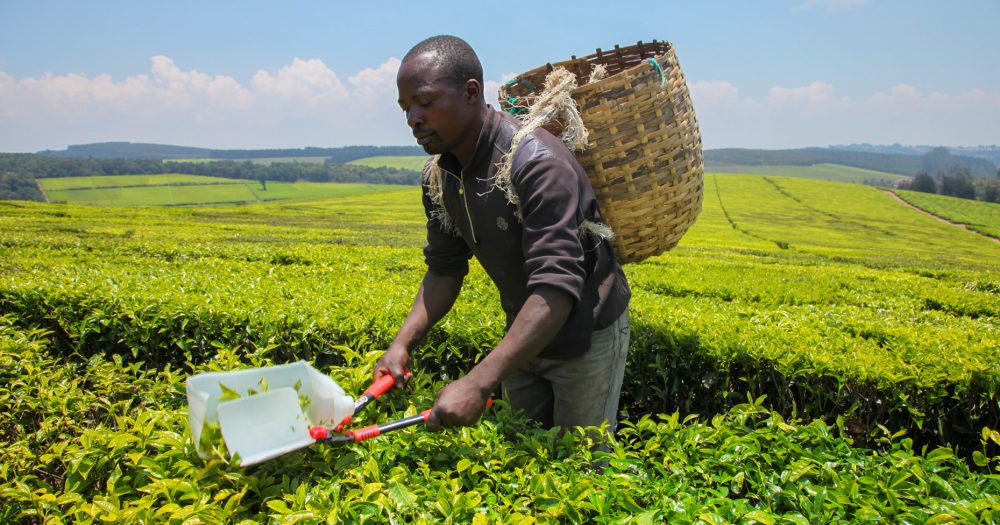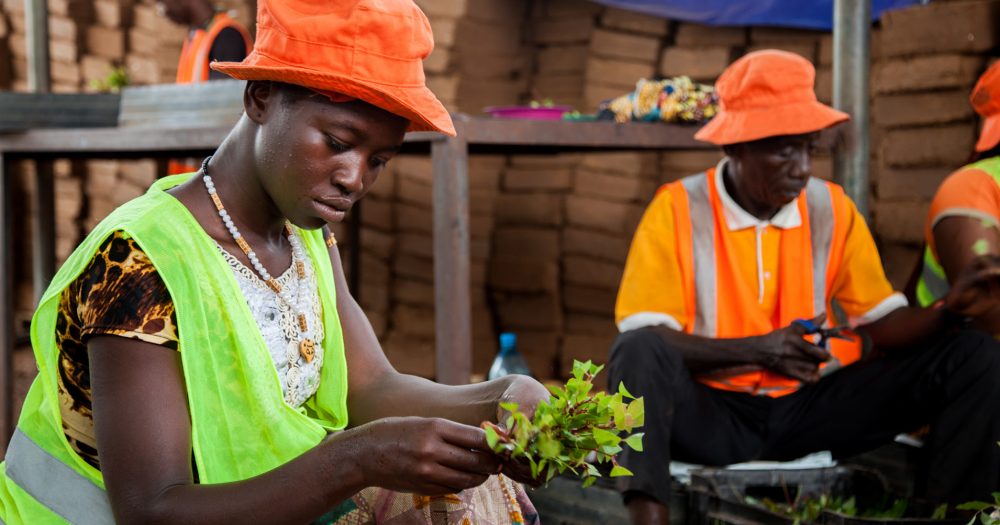Our investment
Description of the investment.
Description of the investment.
Agristar is a leading, vertically-integrated macadamia nut farming group based in South Africa. Our investment will support Agristar's existing operations, the roll out of regenerative agriculture practices across its farms and the installation of solar-powered irrigation pumps. As part of the transaction we also rolled up our stake in Jacoma Estates, a macadamia nut farming operation in Malawi, into Agristar. The combination will allow the transfer of knowledge and best practices between the two farming groups, provide geographic and climatic diversification for Agristar and give Jacoma greater access to Agristar's sector leading processing and marketing capabilities.
Impact information
Applies to investments made from 2019 onwards. The tabs in this section define what we expect to achieve through the investment, assessing the potential impact of the investment against six dimensions of impact. You can find more details on our methodology of assessing impact here.
Applies to investments made from 2019 onwards. The tabs in this section define what we expect to achieve through the investment, assessing the potential impact of the investment against six dimensions of impact. You can find more details on our methodology of assessing impact here.
What?
| Impact |
|---|
Sustain and create economic opportunities through employment (SDG8.5). Support resilience and adaptive capacity to climate related risks, and contribute to climate mitigation (SDG 13.1, 13.A). |
|
|
How?
| Primary | Secondary |
|---|---|
|
To sustain and create economic opportunities for low income rural plantation workers in South Africa through financing Agristar's existing business plan, as well as invest in measures enabling adaptation, resilience and mitigation of climate-related risks. |
Economic enabler: significant foreign exchange generation given 99% of Agristar's output is exported and sold in US dollars. |
Who?
| Stakeholder | Geography | Characteristics |
|---|---|---|
| Employees |
South Africa |
The vast majority of Agristar’s employees (91% based on its main farm operations) are considered low income, with 56% of employees being low skilled general farm workers. 52% of the total workforce is female. |
| Agristar, Planet |
South Africa |
The reliance of macadamia on water resources to grow and sensitivity to changes in temperatures exposes Agristar to climate related risks. |
How much?
| Scale | Depth/Duration |
|---|---|
|
Overall, BII's funding is expected to support 356 jobs at Agristar. |
BII's funding will allow Agristar to deliver its existing business plan and preserve opportunities for future growth, It will protect low income jobs in a region of particularly high unemployment. |
Contribution/additionality
| Contribution/additionality |
|---|
|
Financial additionality: Capital is not offered at all. There is limited institutional interest in investing equity in primary agriculture in Sub-Saharan Africa even in a large, established operator like Agristar, as well as the fact that macadamia is a nascent sector with long (7yr+) planting and harvesting cycles. Value additionality: BII will be the first institutional investor in Agristar and provide strong value-additionality by supporting ongoing improvements to environmental and social practices, among other areas. |
Risk
External RiskGlobal macadamia nut prices are low relative to historical levels, impacting Agristar's income. Should low pricing persist over the long term, Agristar may need to scale back operations and reduce its workforce despite the funding provided to support the existing business plan. |
Environmental and social information
-
Environmental and social summary
A high-level description of the environmental and social aspects of the investment. This may include a summary of key environmental and social risks identified during environmental and social due diligence (ESDD); key elements of an environmental and social action plan (ESAP); or ways in which we plan to support the investee improve environmental and social standards, such as through their environmental and social management system (ESMS); as well as any other priority areas agreed with the investee.
-
Environmental and social risk
A risk category rating, which indicates the level of environmental and social risk associated with an investment. For an explanation of the categorisations used, see here. We consistently provide an environmental and social risk category for all investments screened from 2023 onwards.
Environmental and social summary
We agreed an ESAP focused on the development and implementation of a robust Environmental and Social Management System, including the management and monitoring of labour and working conditions and environmental impacts, also on biodiversity.
Environmental and social risk
Medium-High
Reporting and Complaints Mechanism
The Reporting and Complaints Mechanism allows anyone outside BII to report alleged breaches of the business integrity or environmental and social provisions of BII’s Policy on Responsible Investing. This includes breaches made by BII, a BII investee, or a portfolio company of a fund in which BII has invested. The Reporting and Complaints Mechanism Rules are available here. Reports and complaints can be submitted by email to reportsandcomplaints@bii.co.uk or by mail. See more details on our Reporting and Complaints Mechanism here.
For any other general enquiries contact us at enquiries@bii.co.uk
-
Key facts
- First published
:
When the investment was first published on the website database.
- June 2024
- Last updated
:
When the last quarterly update of the website database occurred.
- December 2024
- Project number
:
An identifier number shared by investments in the same project.
- D5734
- Status
:
The current status of the investment (green flag for active and red flag for exited).
- Active
- Region
:
The geographical region where the country is located. We currently invest in Africa, South Asia, South East Asia and the Caribbean. In 2023, BII’s investment mandate was extended allowing it to invest in regional funds linked to Ukraine, with the majority of activity expected to begin post-war. Investments outside these regions were made prior to 2012 under previous investment mandates.
- Southern Africa
- Country
:
The countries where the investment delivers impact. Where impact is delivered in multiple countries, this is indicated.
- South Africa
- Sector
:
We prioritise those sectors that facilitate development and need our capital the most. Our priority sectors contribute towards many of the Sustainable Development Goals. They range from investing in the power infrastructure that will provide people with better access to electricity, to investing in financial institutions that direct capital to the individuals and businesses that need it the most.
- Business and consumer services
- Sub sector
:
The sub-sector that the investment is made into; this provides a more granular level of detail than the ‘sector’ information
- Food Products
- Investment type :
- Equity
- Start date :
- March 2024
- Amount :
- $32.96k
- Currency of investment :
- CHF
- Domicile
:
The company or investment fund’s place of incorporation.
- Switzerland
We provide capital in the following ways: directly – through direct equity, direct debt, guarantees and other non-intermediated financial instruments; and indirectly – principally through investment funds.
For direct investments and fund investments, this is the date BII committed capital to the investments. This is typically the date on which legal agreements are signed by all parties.
For the portfolio companies of our fund investments, this is the date (either the month or the quarter) on which the fund committed capital to the portfolio company.
For direct equity investments, this is the date at which British International Investment exited the investment.
For debt investments, this is the date at which the final debt repayment was made.
For funds, this is the date at which the fund was terminated.
For underlying fund investments, this is the date at which the fund manager exited the investment.
The total amount committed, per financial instrument, per investment, on the date BII becomes subject to a binding legal obligation to provide funding or assume a contingent liability. This information is provided in US dollars.
For direct investments, this is the amount that BII has committed to the business or project. For fund investments, this is the amount BII has committed to the fund.
The currency in which the investment was made.
- First published


